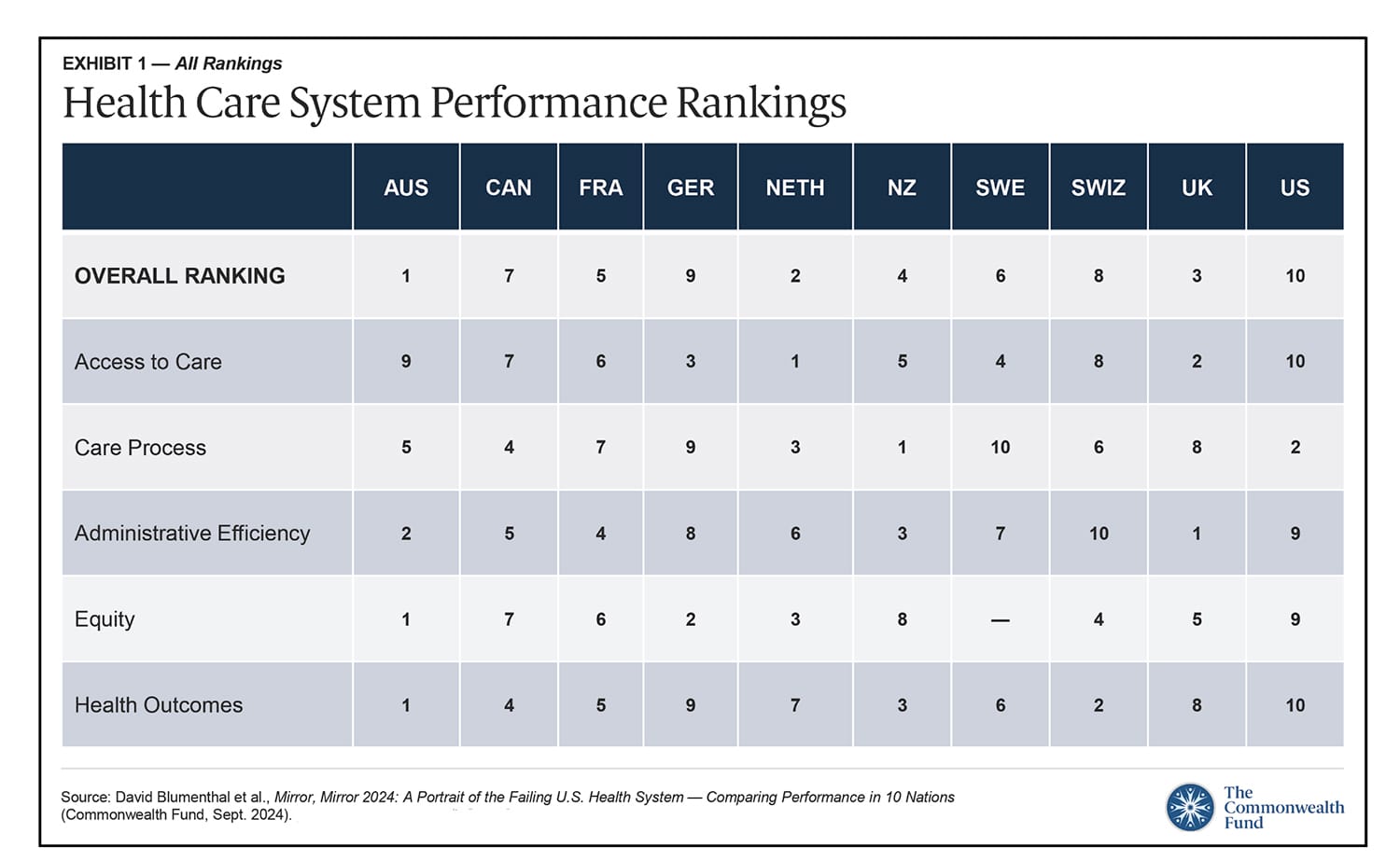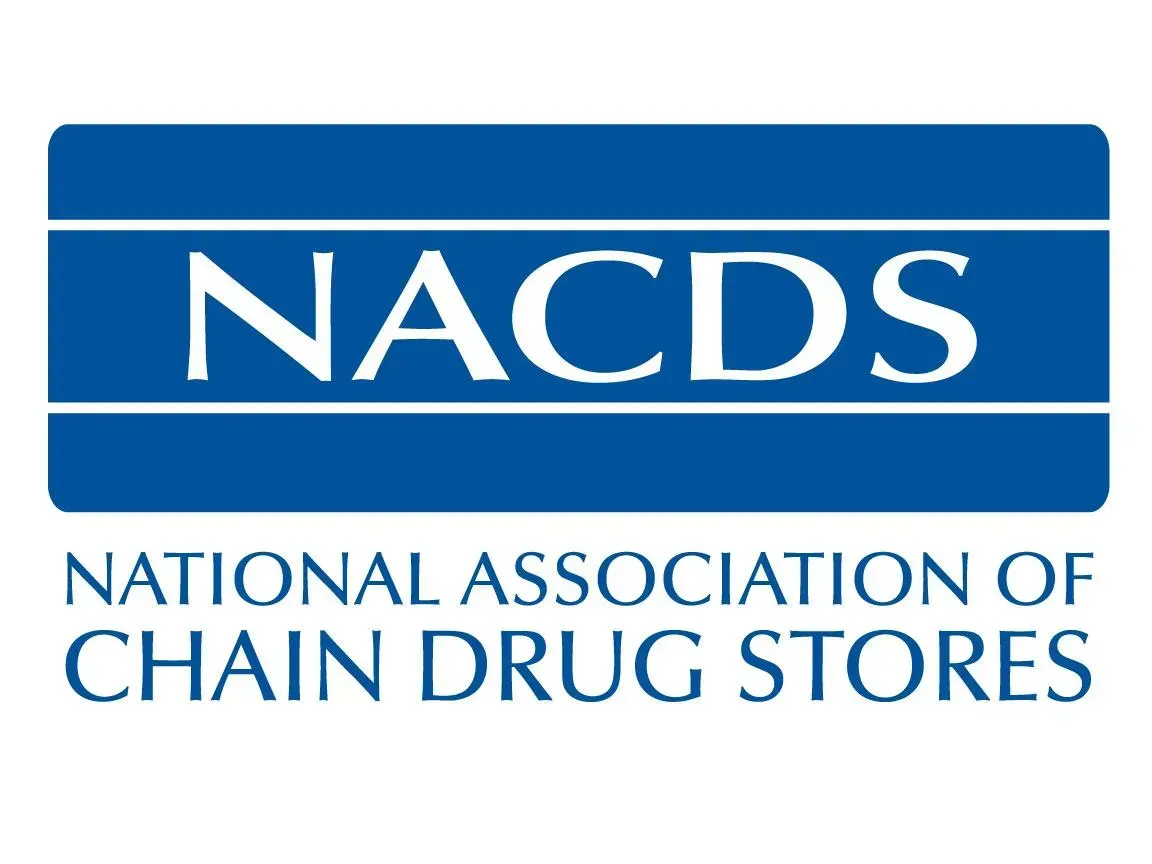By Jeffrey Woldt
It should come as no surprise that, despite being a global leader in the development of innovative treatments and cutting-edge pharmaceutical products, the U.S. health care system has serious deficiencies and delivers a poor return on the more than $4.5 trillion invested in it annually. Nevertheless, it is sobering to read “Mirror, Mirror 2024,” a new study from the Commonwealth Fund that compares health care in this country with that of nine other wealthy nations.
Subtitled “A Portrait of the Failing U.S. Health System,” the report ranks this country worst overall (Australia, The Netherlands and the United Kingdom top the list), and it also finishes last in access to care and, perhaps most telling, health outcomes. The U.S. is the poorest performer on all but one of the measures related to health out-comes, including life expectancy at birth, excessive deaths due to the COVID pandemic, and deaths stemming from preventable and treatable causes. The results are in line with other research, including that conducted by the Organization for Economic Co-operation and Development.
“The U.S. is failing one of its principal obligations as a nation: to protect the health and welfare of its people,” says Dr. Joseph Betancourt, president of the Commonwealth Fund. “The status quo — continually spending the most and getting the least for our health care dollars — is not sustainable. It isn’t about lack of resources — it’s clearly about how they are being spent.

“Too many Americans are living shorter, sicker lives because of this failure. We need to build a health system that is affordable and that works for everyone. It’s past time that we step up to this challenge.”
“Mirror, Mirror 2024” identifies several major obstacles to addressing the issue effectively. Almost 15 years after the Affordable Care Act (ACA) became law, 25 million Americans still lack health care coverage. Disparities are widespread, with many people unable to access and pay for care when they need it, and others experiencing discrimination on the part of providers.
The biggest hurdle of all is the health care industrial complex. Albert Einstein once said, “Bureaucracy is the death of all sound work.” Frontline health care providers would no doubt agree. The combination of public and private payers, myriad health plans, hospital systems and physician groups have resulted in a Byzantine system that often requires patients and providers to jump through hoops before they can even begin treatment. Matters get worse once the bills come in and, as the report notes, patients must “navigate a labyrinth of cost-sharing requirements, paperwork and insurance disputes.”
“While other nations have successfully met their populations’ health needs, the U.S. health system continues to lag significantly,” says Reginald Williams II, the Commonwealth Funds’ vice president of international health policy and practice innovations. “This report shows that by adopting proven strategies and making smart investments, America can enhance its health system to better meet the needs of its people. There’s no reason we can’t elevate our standing if we choose to do so.”
The report recommends specific changes in policy to alleviate the problems that bedevil health care in America. It calls for extending coverage to the uninsured and establishing minimum standards of care; augmenting investment in primary care; eliminating health inequities; regulating the consolidation of resources; and increasing spending to counter social determinants of health that negatively impact large parts of the population.
In and of themselves, the ideas — many of which are aligned with thinking in the retail pharmacy sector — make sense. They can, however, only be truly effective if they are part of a comprehensive overhaul of the system.
Experience has shown that policies intended to fix one problem can produce unintended consequences. To cite just one example, enactment of the ACA brought millions of Americans into the ranks of the insured, but it also triggered a round of consolidation among hospital systems and other providers, reducing patient access and driving up expenditures by limiting competition. The legislation failed to achieve one of its primary objectives, reining in costs, which stood at $2.6 trillion 14 years ago.
The extent, complexity and interconnectedness of U.S. health care increases the likelihood that solving a problem in one part of the system will cause damage in another. If the country is serious about improving its troubled record in caring for its citizens, the next administration and Congress should establish a bipartisan commission comprised of stakeholders — patients, providers and payers — and policy makers to develop substantive recommendations after analyzing health care as a whole.
The piecemeal approach employed to date has created the status quo, which the Commonwealth Fund report found so wanting. Bold new thinking that puts patients and their needs at the center of decision making is needed to give all Americans the health care system they deserve.









